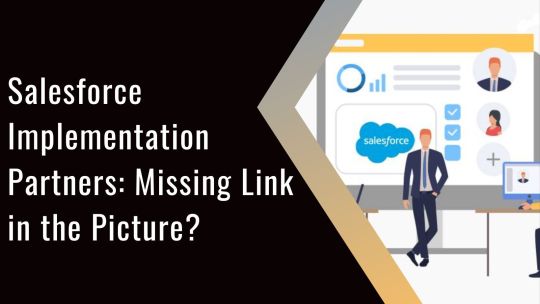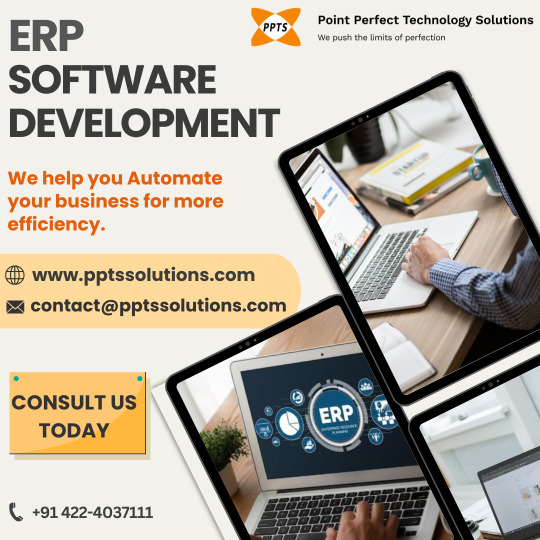#cloud companies in india
Text
Cyber Security Monitoring and Management: Best Practices

In today's digital age, cyber security is an essential aspect of safeguarding businesses, government institutions, and individuals from cyber threats. Effective monitoring and management of cyber security measures can significantly reduce the risk of data breaches, financial losses, and reputational damage. This article outlines the best practices for cyber security monitoring and management, ensuring a secure and resilient digital environment , specifically for cloud computing companies in India.
1. Implement a Strong Security Policy
A comprehensive security policy is the foundation of any robust cyber security program. Develop clear guidelines and procedures for employees and partners, covering topics such as password policies, data protection, and incident response. Regularly review and update the security policy to accommodate evolving threats and business requirements.
2. Establish a Security Operations Center (SOC)
A Security Operations Center (SOC) is a centralized unit responsible for monitoring, detecting, and responding to cyber threats. An SOC should have a team of skilled security analysts and cutting-edge tools to identify and mitigate risks in real-time. Investing in an SOC can significantly enhance an organization's ability to proactively respond to threats.
3. Adopt a Risk-Based Approach
Identify and prioritize the most critical assets and vulnerabilities within your organization, focusing on protecting high-value data and systems. Conduct regular risk assessments to identify potential weaknesses and implement appropriate security measures to mitigate them.
4. Implement Multi-Layered Security
A multi-layered security approach combines various tools and technologies to protect your organization from different types of threats, like we did in Delta IT Network. This approach may include firewalls, intrusion detection systems, encryption, and access controls. Employing multiple layers of security makes it more difficult for an attacker to breach your defenses.
5. Regularly Update Software and Hardware
Outdated software and hardware are prime targets for cyber criminals. Regularly update your systems and applications with the latest security patches and upgrades to protect against known vulnerabilities. Establish a patch management program to streamline the process and ensure timely updates.
6. Perform Regular Security Audits
Conduct regular security audits to evaluate the effectiveness of your cyber security measures. An audit should include vulnerability scanning, penetration testing, and security controls assessments. These assessments can identify weaknesses in your security posture and help you address them before they are exploited.
7. Develop an Incident Response Plan
An incident response plan provides a structured approach for dealing with cyber security incidents. It outlines the roles and responsibilities of key personnel and provides guidelines for detecting, containing, and recovering from a security breach. Regularly test and update the incident response plan to ensure that your organization is prepared for any eventuality.
8. Train and Educate Employees on Cyber Security
Employees are often the weakest link in an organization's security chain. Provide regular cyber security training and awareness programs to educate employees about threats, vulnerabilities, and best practices. This will help them recognize and respond to potential risks and reinforce the importance of following security procedures.
9. Monitor and Manage Third-Party Risks
Third-party service providers and vendors can introduce vulnerabilities into your organization. Establish a vendor risk management program to assess and monitor the security posture of third parties, ensuring they adhere to your organization's security standards.
10. Continuous Improvement
Cyber threats are constantly evolving, and so should your organization's cyber security practices. Stay informed about the latest trends and developments in the cyber security landscape. Implement a continuous improvement process to regularly review and enhance your security measures, adapting to new threats and technologies.
Conclusion
In a world of ever-evolving cyber threats, effective cyber security monitoring and management are crucial for organizations of all sizes. By implementing these best practices, you can protect your valuable assets, minimize the risk of data breaches, and maintain a secure and resilient digital environment. Stay proactive and vigilant in your.
For any clarifications or queries, please feel free to contact us at:
Mobile: +91-8826196688 or 9910248322
Email ID: [email protected]
Visit Website: www.deltaitnetwork.com
#cloud computing companies in india#cloud companies in india#cloud computing service providers in india#cloud solutions provider in india
0 notes
Text
Elevate Efficiency with Top-tier ERP Software for Engineering Companies in Mumbai, India
Unlock unparalleled efficiency for your engineering company with ShantiTechnology's (STERP) advanced ERP software solutions. Tailored specifically for engineering companies in Mumbai, India, our ERP solutions redefine operational excellence. As one of the leading ERP solution providers in India, we bring you state-of-the-art technology to streamline processes, enhance collaboration, and boost productivity.
Experience the next level of business management with ShantiTechnology (STERP) – your trusted partner for cutting-edge ERP software tailored for engineering companies in India and specifically optimized for those in Mumbai.
#ERP software for engineering company#ERP software for engineering companies in India#ERP software for engineering companies in Mumbai#ERP solution providers in India#ERP software#ERP system#cloud ERP#ERP solutions#ERP India#Business Solutions#SAP Business One#Supply Chain Management
7 notes
·
View notes
Text
Future Horizons of Scan to BIM Technology

Scan to BIM is important for reconstruction and renovation projects as it eases the complex process and eliminates the manual methods of measurements. However, the rapid growth in tech brightens the future with more accuracy and efficiency in the working approach. Get a better understanding of the future horizon of scan to BIM technology.
#bim services#bim modeling services#scan to bim services#bim services india#point cloud to bim#point cloud to bim services#bim drafting services#bim outsourcing services#outsource bim services#bim architectural services#laser scan to bim#point cloud modeling services#scan to bim modeling services#laser scan to bim services#scan to bim modeling#point cloud scan to bim#scan to bim company
2 notes
·
View notes
Text

Call it what you will, but ya'll know it's just a chem trail . . .
#hand-forged ales#alesmith brewing company#cloud stream#hazy india pale ale#san diego#california#beer#hazy ipa#chem trails
3 notes
·
View notes
Text
Salesforce Implementation Partners: Missing Link in the Picture?

Salesforce is a powerful platform with amazing features and endless capabilities. Businesses, regardless of the industry verticals, look forward to implementing Salesforce to strengthen their relationship with customers. Though it might sound simple and easy, starting an implementation without diligent preparation and planning often results in poor outcomes, which can require time-consuming and costly rework—this is where Salesforce implementation partners come to your rescue.
This blog answers some of the most common questions that people often have about working with a Salesforce implementation partner. In addition, it also tells you how to make the most of this strategic collaboration.
In response to changes in customer behaviors, businesses of varying sizes and scopes are accelerating their digital transformation initiatives. A majority of them are interested in employing integrated, access-from-anywhere kind of solutions such as a Customer Relationship Management (CRM) software/platform— just like the ones offered by Salesforce.
Here is what the statistics have to say about one of the fastest-growing categories of enterprise software: the global spending on Salesforce is projected to be around 675 billion U.S. dollars in the current year. In the previous year, Salesforce took approximately 24% market share of the global CRM applications market.

Going forward, exploring a Salesforce CRM solution is one aspect; knowing what applications, products, as well as configurations best suit your business-specific needs is totally another matter. Perhaps, this is why a majority of Salesforce customers resort to accredited experts to ease their entry into the world of Salesforce. These dedicated experts are your implementation partners. There is a wide network of Salesforce implementation partners that assist businesses to achieve their CRM goals quickly and effectively.
What is an Implementation Partner?
To put it in simple words, an implementation partner is a company that has been approved by Salesforce after reviewing it to implement Salesforce CRM solutions on its behalf where each implementation partner specializes in some specific areas, applications, or industries. This implies that there is a partner that caters to every business need, challenge, product, industry vertical, region, etc., and assists us along the entire Salesforce journey.
Why do Businesses Need an Implementation Partner?
Salesforce CRM solutions are known to cover the entire spectrum of business operations, which include marketing, sales, service, as well as sustainability. Each of its products can be bolstered via platform-to-platform integrations and add-on applications.
In other words, the entire Salesforce ecosystem offers endless capabilities—where the main challenge is to select the right product with the integrations and configurations that best fit your business-specific needs. Consider the case in point, a big organization might already be working with multiple technological solutions. They want to figure out how a Salesforce product, for example, Marketing Cloud, can be integrated with their existing workflows without causing friction, and are looking for assistance for the same.
Take another case in point, a smaller company might be scaling upwards quickly. They also know that continuing to work with spreadsheets would not support their growth. Amidst this, they realize that they must automate their processes—or it is time to develop more streamlined and personalized customer experiences.
Implementing a CRM solution for the first time can be daunting for a majority of companies. It is a challenging task for internal teams or employees with no experience in Salesforce to take into consideration all the variables as well as implement a new and highly configurable CRM solution. Besides, hiring a full-time employee to look after the CRM implementation process can also be a costly avenue.
These were some of the situation-specific reasons that a significant chunk of Salesforce customers resort to partner applications and experts.
When is the Right Time to Engage with Implementation Companies?
As early as possible would be apt if it were to be answered in a nutshell.
You need to do your due diligence, just like you do with any significant investment. First of all, figure out what needs have to be met, gaps that have to be closed, or issues that need to be addressed. Talking of the Salesforce implementation case, you must formulate a vision of what you want to achieve that is the ‘what.’ After this, determine the ‘how,’ which is often the most complicated part for any business.
It is time to bring in a partner as soon as you figure out your goals. The right implementation partner will not just facilitate the ‘how,’ but they’ll also help you crystallize the ‘what’. They will assist you to clarify your success metrics, understanding what is realistic, as well as advise on appropriate products. Accordingly, the experts will lay out a logistically sound timeline for your implementation journey to finish it off.
It is important to note that bringing in a partner late in the game usually results in missed opportunities—in terms of understanding and scope. As the relationship between a partner and a customer is close and collaborative, the only secured way to ensure seamless implementation is when the journey begins together.
How to Figure Out the Right Implementation Partner?
Some of the implementation partners have generalized Salesforce capabilities. More often than not, these companies specialize in particular functions or areas of the CRM solution. While some might specialize in customer data platforms (CDP) or Marketing Cloud, others might specialize in harnessing the combined powers of Einstein and Sales Cloud.
Another factor is value alignment, which has come to the forefront in recent years. People want to work with companies that share their values. What we mean here is that people prefer to work with an organization that prioritizes sustainability or champions diversity and equality.
Shopping around is a good practice irrespective of whether or not these things are top-of-mind for you. Interact with different Salesforce partners, get a feel of who they are, know the way they work, and so on. As this is an important relationship, we would recommend you not settle for anything less than the right fit for your business.
Salesforce AppExchange is the best as well as a most comprehensive resource for both partners and products. There are plenty of experts and numerous applications at your fingertips where one can also browse specializations, certifications, and customer reviews.
In short, certifications, as well as credentials come into play as does the specific expertise of that implementation company.
What Challenges Might a Business Encounter During Implementation?
It has already been stressed enough that bringing in a partner as early as possible decreases the chances of challenges that might be emerging down the line.
What is also important apart from this is to be clear on what you want to solve, plus how you measure success over time. Most instances of dissatisfaction or confusion emerge from a lack of understanding on the part of the partner or the customer. Fault assumptions can be made and misunderstandings on capabilities and timelines can arise if both the parties, partner and customer are not on the same page. This makes goals, objectives, and success benchmarks harder to be reached.
As a customer, you need to be as transparent as you want your Salesforce implementation partner to be. Genuine advice is that you should never be afraid to ask questions more than once and it is better to clear all the doubts that you have got—the implementation process is highly technical in nature and seeking clarification in this is quite natural.
Just as stakeholders place the customer at the center of their business, Salesforce implementation partners place them at the center of theirs. Also, they measure their success by aligning the outcomes to your business-specific needs; in other words, by delivering exactly what you need. For dedicated Salesforce implementation companies customer success equals partner success.
Last but not the least, every successful relationship in life thrives on honest, open communication from the outset; and the Salesforce implementation partnership is no exception to this rule.
Final Thoughts
To achieve exceptional results and maximize license usage, it is important to ensure that your Salesforce solution is fully tuned to business-specific needs and well-adopted by your organization. To maximize the success of Salesforce implementation, you need to engage with a Salesforce implementation partner.
You might be missing out on the potential opportunities in terms of scope and understanding, due to insufficient resources or skill gaps. Besides, the relationship between an implementation partner and a customer is collaborative and close. So, the only way to ensure a successful implementation is when the journey begins together.
The next step is to meet and network with different partners to get a feel of who they are, what is their way of working, and so on—this is an important relationship, so you must not settle for anything less than the best fit for your business. Now that you know what is right for you, it is time to make the move.
#salesforce implementation partners in india#salesforce implementation partners#salesforce implementation companies in india#salesforce implementation companies#salesforce implementation services#salesforce implementation consultant#salesforce implementation company#salesforce cloud implementation#salesforce cpq implementation partners
1 note
·
View note
Text

The pressing question now is whether to host the mobile testing process internally or to leverage one of the many cloud-based mobile testing tools available today. Click Here:https://shorturl.at/VGKgh
#Software Testing Companies in India#Software Testing Services in India#Test Automation Development Services#Test Automation Services#Performance testing services#Load testing services#Performance and Load Testing Services#Software Performance Testing Services#Functional Testing Services#Globalization Testing services#Globalization Testing Company#Accessibility testing services
Agile Testing Services#Mobile Testing Services#Mobile Apps Testing Services#ecommerce performance testing#ecommerce load testing#load and performance testing services#performance testing solutions#product performance testing#application performance testing services#software testing startups#benefits of load testing#agile performance testing methodology#agile testing solutions#mobile testing challenges#cloud based mobile testing#automated mobile testing#performance engineering & testing services#performance testing company#performance testing company in usa
1 note
·
View note
Text

At Tech Avtar, we pride ourselves on being a top-tier technology service company in India with a global reach. Specializing in the design and development of websites, applications, and software, we meet a wide range of client needs. If you're seeking a dependable partner to bring your product vision to life at competitive rates, Tech Avtar is your solution. Connect with us at [email protected] to discover how we can support your project.
#Top Technology Services Company#Generative AI Development Company#AI Calling Software#AI Software Development Company#Best Chatbot Service Company#AI Calling Software Development#AI Automation Software#Best AI Chat Bot Development Company#AI Software Dev Company#Top Web Development Company in India#Top Software Services Company in India#Best Product Design Company in World#Best Cloud and Devops Company#Best Analytic Solutions Company#Best Blockchain Development Company in India#Best Tech Blogs in 2024#Creating an AI-Based Product
0 notes
Text

By ensuring your software is meticulously tested for global readiness, we help you deliver seamless user experiences across diverse languages and cultures. Let's transform your product into a global phenomenon, reaching audiences far and wide with precision and reliability. https://bit.ly/3EKzvs2 #SDET #GlobalProduct #LanguageGap #SoftwareTesting #UserExperience #Localization SDET Tech
#Software Testing Companies in India#Software Testing Services in India#Test Automation Development Services#Test Automation Services#Performance testing services#Load testing services#Performance and Load Testing Services#Software Performance Testing Services#Functional Testing Services#Globalization Testing services#Globalization Testing Company#Accessibility testing services
Agile Testing Services#Mobile Testing Services#Mobile Apps Testing Services#ecommerce performance testing#ecommerce load testing#load and performance testing services#performance testing solutions#product performance testing#application performance testing services#software testing startups#benefits of load testing#agile performance testing methodology#agile testing solutions#mobile testing challenges#cloud based mobile testing#automated mobile testing#performance engineering & testing services#performance testing company#performance testing company in usa
0 notes
Text

Based in Mohali, India, Algoson Software excels in website, software, and AI product development. Explore our affordable, high-quality design services for websites, applications, and software. For more information, contact us at [email protected].
#Algoson Software#Best Software Development Company in India#Custom Application Development Company#Best Custom Software Development Company#Best Web and Software Development in India#Web App Development Services in Mohali#Best Artificial Intelligence Services Company#Best Cloud Computing Services#Explore Algoson Quality Engineering Services#Browse DevOps Services by Algoson#Application Software Company#Trending in Software Development#Website App and Software Development Company
0 notes
Text
How can ERP for Contract Management Help Your Business?
In today's complex business environment, managing contracts efficiently is crucial for the success and sustainability of organizations across various industries. Enterprise Resource Planning (ERP) systems, which integrate multiple business processes into a single unified system, have become an essential tool for managing contracts. This article explores the benefits, functionalities, and implementation considerations of ERP for contract management.
What is ERP?
ERP systems are comprehensive software platforms organizations use to manage day-to-day business activities such as accounting, procurement, project management, risk management, and compliance. Centralizing data and processes, facilitates the flow of information across all departments, thereby enhancing decision-making and operational efficiency.
Importance of Contract Management
Contracts are the backbone of business relationships, outlining the terms and conditions under which business transactions occur. Effective contract management ensures that agreements are compliant with regulatory requirements, deliver expected value, and mitigate risks. Poor contract management, on the other hand, can lead to financial losses, legal issues, and damaged business relationships.
Integrating ERP with Contract Management
Integrating contract management within an ERP system offers numerous advantages:
Centralized Repository: It provides a single, centralized repository for all contracts. This centralization ensures that contracts are easily accessible to authorized personnel, reducing the risk of lost or misplaced documents.
Automation of Workflows: Contract management software systems automate contract-related workflows, including approvals, renewals, and compliance checks. Automation reduces manual errors, speeds up processes, and ensures that all necessary steps are followed consistently.
Real-time Tracking and Reporting: With contract management ERP software, organizations can track contract status in real-time, providing insights into contract performance, compliance, and renewals. Real-time reporting facilitates better decision-making and strategic planning.
Compliance Management: Top contract management software helps ensure that contracts comply with relevant laws and regulations. Automated compliance checks and audit trails make it easier to demonstrate adherence to regulatory requirements during audits.
Integration with Other Business Functions: Contracts often involve various departments such as procurement, sales, and finance. ERP software seamlessly integrates contract management with these functions, ensuring that contract terms are aligned with business operations.
Risk Management: By providing visibility into contract terms and conditions, ERP systems help identify and mitigate risks associated with contracts. This includes monitoring contractual obligations, deadlines, and potential penalties.
Key Features of ERP for Contract Management
When choosing the best contract management software, look for the following key features:
Document Management: Efficient storage, retrieval, and management of contract documents.
Workflow Automation: Automated approval processes, notifications, and task assignments.
Compliance and Audit Trails: Tools for ensuring regulatory compliance and maintaining detailed records of contract activities.
Reporting and Analytics: Real-time reporting capabilities to monitor contract performance and generate actionable insights.
Integration Capabilities: Seamless integration with other business modules such as procurement, sales, and finance.
Security: Robust security measures to protect sensitive contract information from unauthorized access.
Implementation Considerations
Implementing an ERP system for contract management requires careful planning and execution. Consider the following steps:
Needs Assessment: Conduct a thorough assessment of your organization's contract management needs and identify key pain points.
Vendor Selection: Choose a vendor with robust contract management features and a proven track record in your industry.
Customization: The system must align with your specific contract management processes and workflows.
Training and Change Management: Invest in training for users and implement change management strategies to ensure smooth adoption of the new system.
Continuous Improvement: Regularly review and optimize the system to ensure it continues to meet your evolving contract management needs.
Final Thought
ERP for contract management offers significant advantages in efficiency, compliance, and risk management. Organizations can ensure that their contracts deliver maximum value and support strategic business objectives by centralizing contract information and automating key processes. As businesses continue to navigate an increasingly complex regulatory and economic landscape, leveraging contract management software will be essential for maintaining a competitive edge.
0 notes
Text
Top Cloud Service Companies in India

Explore India's leading cloud service providers in 2024. From startups to tech giants, discover how these companies are driving innovation, offering scalable solutions, and transforming businesses with cutting-edge cloud technology. Your ultimate guide to the best in cloud computing.
1 note
·
View note
Text

Industry-leading reliability
The digital landscape in India is booming! More and more individuals and businesses are recognizing the power of having a strong online presence. But before you dive headfirst into website creation, there's a crucial first step: selecting the right web hosting company in India.
Web hosting companies in India act as the foundation for your website. They provide the storage space and infrastructure needed for your website to be accessible on the internet. Choosing the right one can significantly impact your website's performance, security, and overall user experience.
Why Partnering with a Reputable Web Hosting Company in India is Essential
Here are some compelling reasons to prioritize finding the right web hosting company in India:
Speed and Performance: Indian internet users expect fast loading times. A reliable web hosting company in India equips your website with robust servers, ensuring lightning-fast speeds and a smooth user experience. This is especially important for e-commerce websites where slow loading times can lead to lost sales.
Security and Reliability: In today's digital world, website security is paramount. A reputable web hosting company in India provides advanced security measures to protect your website from malware, hacking attempts, and data breaches. This gives you peace of mind knowing your website and visitor information are safeguarded.
Technical Support: Building and maintaining a website can involve technical challenges. A good web hosting company in India offers reliable customer support, readily available to assist you with any technical issues that may arise. This ensures you have a helping hand whenever needed.
Scalability and Growth: As your website grows in popularity and content, your hosting needs will evolve. The right web hosting company in India provides scalable solutions to accommodate this growth. They offer various hosting plans that can adapt to your website's increasing traffic and data storage requirements.
Choosing the Perfect Fit
Web hosting companies in India offer a variety of plans catering to different needs and budgets. Consider factors like website size, expected traffic volume, and desired features when making your selection. Don't hesitate to research and compare plans before making your decision.
Investing in a Reliable Web Hosting Company in India is an Investment in Your SuccessBy choosing a reputable web hosting company in India, you lay a solid foundation for your online presence. With a secure, fast-performing website, you'll be well-equipped to attract visitors, build trust, and achieve your online goals. So, take the time to research, compare options, and find the perfect web hosting partner to empower your journey in the ever-evolving digital world of India.
#Web Hosting Company In India#Web hosting India#Hosting services#Indian hosting providers#Server hosting#Cloud hosting India
0 notes
Text
Pioneering ERP Software for Manufacturing companies | shantitechnology | STERP
Unlock unparalleled efficiency and productivity with STERP, the choice for ERP systems for manufacturing companies. We specialize in delivering cutting-edge solutions that enhance every facet of your manufacturing operations where Manufacturing Meets Excellence. Our ERP software for manufacturing companies are designed to enhance efficiency, optimize processes, and fuel growth. STERP sets the gold standard for ERP systems in the manufacturing and software development sectors. Our commitment to innovation, reliability, and customer satisfaction shines through in our ERP solutions. With STERP, you are not just adopting software; you are embracing a transformative solution that empowers you to stay ahead in the competitive manufacturing landscape.
Join the ranks of industry leaders with STERP's tailored ERP software. Your success is our commitment.

#ERP systems for manufacturing companies#ERP for manufacturing companies#ERP for software development company#ERP software for manufacturing companies#ERP Software#ERP India#Business Solutions#Cloud ERP#Business#Manufacturer
7 notes
·
View notes
Text
The Rise of Cloud Computing in India: An Overview for 2024

Cloud Computing's Expansive Reach
The cloud computing companies in India are witnessing a significant transformation. As we step into 2024, businesses across the nation are increasingly leveraging cloud technologies to enhance efficiency, scale operations, and drive innovation. With an array of cloud services, including infrastructure as a service (IaaS), platform as a service (PaaS), and software as a service (SaaS), companies are finding robust solutions to meet their digital demands.
Key Players and Services
Among the notable contributors to cloud services, Amazon Web Services - AWS development India continues to play a pivotal role, offering a diverse suite of cloud solutions that cater to varying business needs. This encompasses everything from web hosting and data management to complex application deployment, ensuring that businesses have the resources they need to thrive in a digital-first environment.
AI and Cloud Computing Integration
A significant trend shaping the future of cloud computing in India is the integration of artificial intelligence (AI). As AI continues to evolve, it is becoming a fundamental component of cloud services, offering businesses the tools to automate processes and derive actionable insights from large datasets. This AI integration is not just enhancing operational efficiencies but is also enabling companies to offer personalized services and experiences to their clients.
Emphasis on Multi-cloud Strategies
To mitigate risks associated with dependency on a single cloud provider, Indian companies are adopting multi-cloud strategies. This approach not only enhances system reliability and data redundancy but also allows businesses to optimize their operations by leveraging the distinct strengths of different cloud services.
The Role of DevOps and Innovation
The adoption of DevOps practices is becoming increasingly prevalent among the leading DevOps companies in India.This methodology, with its emphasis on collaboration and efficiency, is crucial in a cloud-driven market where speed and innovation define the competitive edge. By highlighting the importance of DevOps, we aim to instill a sense of urgency in our audience about the need to adopt these practices for their business's success.
Future Outlook
As we look towards the future, cloud computing in India is set to not only support but also drive business transformations across various sectors. With advancements in cloud infrastructure and the growing integration of technologies like blockchain and quantum computing, the scope for innovation is boundless.
BuzzyBrains: Your Partner in Cloud Innovation
If you want to navigate this dynamic landscape, partnering with a knowledgeable and experienced player like BuzzyBrains can make all the difference. Specializing in AWS development and proficient in the latest DevOps practices, BuzzyBrains is a beacon for businesses aiming to leverage cloud technologies for sustainable growth and innovation in India.
Visit BuzzyBrains' website for more information on how They can assist your business in harnessing the power of cloud computing. Embrace the future with a trusted partner who understands the nuances of the Indian cloud computing market.
#cloud computing services in india#cloud computing companies in India#aws development india#buzzybrains software#devops companies in india#BuzzyBrains Software
0 notes
Text

. . . lasting three to ten seconds.
#saranac#clouded dream ipa#tropical india pale ale#fx matt brewing company#utica#new york#independent craft
4 notes
·
View notes
Text
Emerging Trends in the Future of ERP Software Development
For decades, Enterprise Resource Planning (ERP) systems have been a pillar of modern business, allowing enterprises to improve their operations, integrate several departments, and obtain important insights into their processes.
However, the continuously changing technical landscape and the constantly shifting needs of the business sector are propelling the future of ERP software development into exciting new areas.
In this post, we'll look at some of the major trends influencing the future of ERP software development.
Cloud-based ERP solutions
The transition to cloud computing has been one of the most disruptive movements in the IT sector, with ERP systems being no exception. Cloud-based ERP solutions have various advantages over traditional on-premises systems, such as lower upfront costs, flexibility, accessible from anywhere, and automated upgrades.
ERP suppliers are focusing their efforts on developing cloud-native solutions that take full advantage of cloud computing's capabilities, such as enhanced analytics, machine learning, and seamless integration with other cloud services.
AI and Machine Learning
Artificial intelligence (AI) and machine learning (ML) are transforming a variety of industries, including ERP software development. ERP companies are incorporating AI and machine learning capabilities into their offerings to enable predictive analytics, automated decision-making, and intelligent process automation.
These technologies can help firms acquire useful insights from their data, streamline operations, and make more informed decisions, resulting in enhanced productivity and profitability.

Internet of Things (IoT) Integration
The Internet of Things (IoT) is changing the way businesses run by enabling the seamless integration of physical devices and sensors with software. In the context of ERP, IoT integration enables real-time monitoring and tracking of assets, inventory, and manufacturing processes, giving enterprises unprecedented insight and control over operations. ERP companies are working on systems that can smoothly interface with IoT devices, allowing businesses to exploit the massive amount of data created by these devices and optimize their operations accordingly.
User Experience (UX), Mobility
In today's fast-paced work world, people expect intuitive and user-friendly interfaces that enable them to access vital information and complete activities while on the go. ERP suppliers are focusing heavily on enhancing the user experience (UX) of their solutions by implementing modern design principles, responsive layouts, and mobile-friendly interfaces. This trend ensures that ERP systems are accessible and simple to use regardless of device or platform, resulting in increased productivity and adoption rates.
Microservices and Modular Architecture
Traditional ERP systems were frequently monolithic and inflexible, making it difficult to respond to changing business requirements or interact with third-party applications. To address this issue, ERP companies are embracing microservices and modular designs, which divide the ERP system into smaller, self-contained components that can be created, deployed, and scaled separately. This strategy not only improves flexibility and scalability, but also makes it easier to integrate with other systems and fosters agile development processes.
Cybersecurity and Data Privacy
As businesses rely more on digital technologies, cybersecurity and data privacy have become key issues. ERP suppliers are focusing heavily on providing secure and compliant solutions that protect sensitive data from cyber attacks and comply with various data privacy standards, such as the General Data Protection Regulation (GDPR) and the California Consumer Privacy Act (CCPA). This approach entails putting in place strong security measures, encryption, access restrictions, and auditing tools to protect business data integrity and confidentiality.
Sustainability and Environmental Considerations
In today's environmentally conscious society, businesses are more concerned with lowering their carbon footprint and implementing sustainable practices. ERP suppliers are responding to this trend by creating systems that allow organizations to measure and optimize their energy consumption, reduce waste, and implement environmentally friendly operations. Additionally, some suppliers are adding circular economy principles into their ERP systems, allowing for the reuse, recycling, and repurposing of goods and resources.
As the future of ERP software development continues to unfold, businesses and vendors alike must remain agile and adaptable to stay ahead of the curve.
By embracing these emerging trends, organizations can leverage the full potential of modern ERP systems, streamline their operations, and gain a competitive edge in an ever-changing business landscape.

Point Perfect Technology Solutions (PPTS) being one of the leading ERP company in India, help you integrate your business with custom Odoo ERP solutions – Exclusively for you!
We are the official Odoo Gold Partner in India with successful clients across the globe.
Schedule a free demo with us at https://www.pptssolutions.com/contact-us/ to learn more.
#odoo erp#odoo erp support#erp software#software#softwaredevelopment#odoo partner in india#odoo services#odoo gold partner#business#erp in india#cloud erp#erp#erp software development company#erp software development services
0 notes